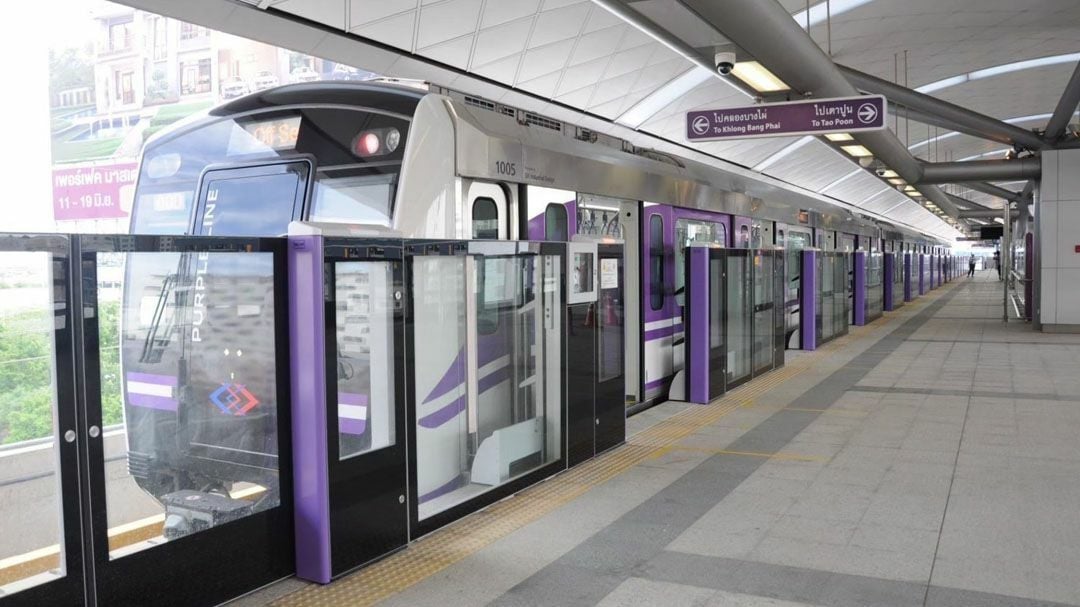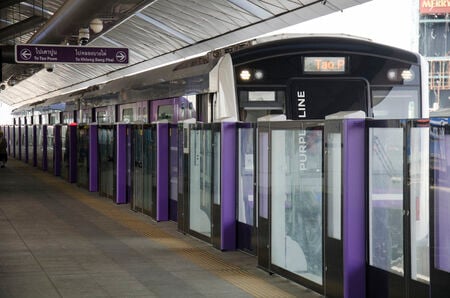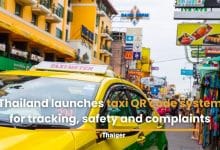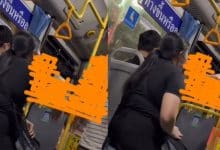MRT 20-baht bonanza: MRT hits the jackpot for commuters

The Mass Rapid Transit Authority of Thailand (MRTA) has hit the jackpot with its new 20-baht maximum fare policy, hailed as a major triumph in public transport. Launched as part of the Ministry of Transport’s Quick Win programme, Transportation for Public Prosperity, the initiative aims to lighten the commuting costs for everyone.
Starting with the MRT Purple Line last week, the policy is set to expand, allowing passengers to travel seamlessly across both the Purple and Red Line suburban systems for a mere 20 baht using a single EMV Contactless card.
Since the rollout, daily ridership on the Purple Line has skyrocketed by 17.7%, with over 66,000 passengers now hopping on each day, an impressive jump from pre-policy numbers. Meanwhile, the Blue Line isn’t lagging, boasting an 11.92% increase and serving an average of 420,000 passengers daily.
Key transfer hubs like Sukhumvit and Silom have also seen a boost, with passenger numbers climbing by 9.11% and 9.80% respectively. The success of the Purple Line is having a ripple effect, enhancing ridership across the entire Bangkok mass transit network.
Particularly noteworthy is the Nonthaburi Civic Center station, which connects to the Pink Line and has experienced a staggering 63.36% rise in passengers. Nearby, Talad Bang Yai Station, situated close to a bustling shopping district, reported a solid 27.22% increase in daily users.
Park-and-ride facilities along the Purple Line are reaping rewards too. The Bang Yai intersection parking lot has seen a 29% spike in weekday usage, while Bang Rak Noi Tha It station enjoyed a 23% rise in visitors.
This initiative has not only boosted public transport ridership but has also played a vital role in cutting down traffic congestion and air pollution in the city, paving the way for a more sustainable urban environment.
In addition to the fare policy, the MRTA is rolling out initiatives like the PAPA Care programme (Priority Accessible Purple Line Area) to support the elderly, disabled, pregnant passengers, and children, ensuring that public transport is accessible for all.
In partnership with Krung Thai Bank, the MRTA has introduced an EMV Contactless card that offers fare discounts across all MRT lines while seamlessly integrating with other public transport systems, including the Red Line and BMTA buses.

What Other Media Are Saying
- Bangkok Post. The Transport Ministry plans to finance a 20-baht flat fee policy for electric rail services in Bangkok with an annual budget of 8 billion baht, aiming to reduce living costs and increase public transport use. (read more)
Frequently Asked Questions
Here are some common questions asked about this news.
Why has the 20-baht maximum fare policy had such a significant impact on public transport ridership in Bangkok?
The policy reduced commuting costs, making public transport more attractive and accessible.
How could extending the 20-baht fare policy to other transit lines affect Bangkok’s overall transportation network?
It could further increase ridership, reduce traffic congestion, and improve air quality.
What if other cities adopted a similar fare policy for their public transport systems?
It might lead to higher public transport usage, lower traffic congestion, and enhanced urban sustainability.
Why is the integration of the EMV Contactless card important for Bangkok’s public transport system?
It simplifies fare payments and encourages seamless travel across multiple transit lines.
How does the PAPA Care program contribute to making public transport more inclusive in Bangkok?
It ensures that elderly, disabled, pregnant passengers and children have equitable access to transit services.
Latest Thailand News
Follow The Thaiger on Google News:


























